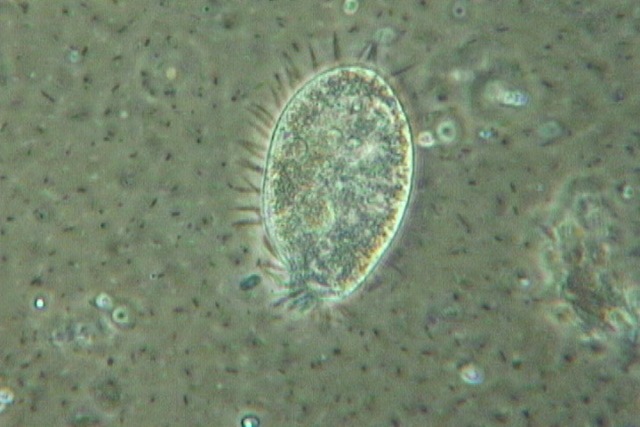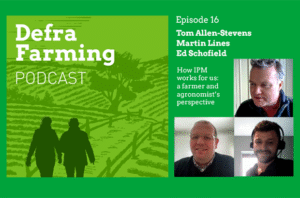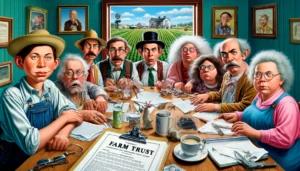
soil protozoa.jpg

Soil Protozoa: Microscopic Predators in the Soil Food Web
Definition:
Soil protozoa are microscopic single-celled organisms belonging to the kingdom Protista, inhabiting the soil environment and playing important roles in nutrient cycling, organic matter decomposition, and microbial community dynamics. These tiny predators are essential components of the soil food web, preying on bacteria, fungi, and other microorganisms.
Practical Advice:
Understanding the role of soil protozoa is essential for farmers as it allows them to implement management practices that support a balanced soil food web and promote soil health and fertility. By encouraging the presence of soil protozoa, farmers can enhance nutrient cycling, suppress soil-borne pathogens, and improve crop productivity.
Fall off the barn roof and busted your keister? Life on the farm or ranch can be tough on the bum. Need a break? Laugh it off at FarmerCowboy.com, the #1 farm humor site. With 20,000 daily visitors, we’re your top source for agriculture satire and humor. Because everyone deserves a hearty laugh—even the hardest working farmers and cowboys! Join us and turn those long days into fun tales at FarmerCowboy.com.
Enlightening Details:
- Predatory Behavior: Soil protozoa are voracious predators, feeding on bacteria, fungi, and other soil microorganisms. By controlling the populations of these microorganisms, protozoa help regulate nutrient cycling and maintain microbial diversity in the soil.
- Nutrient Cycling: Protozoa play important roles in nutrient cycling by releasing nutrients such as nitrogen and phosphorus through their feeding activities. These nutrients become available for plant uptake, contributing to soil fertility and plant growth.
Informative Tips:
- Diversity and Abundance: Soil protozoa exhibit a wide diversity of species and functional traits, including amoebae, flagellates, and ciliates. Understanding the diversity and abundance of soil protozoa can provide insights into soil health and ecosystem functioning.
- Environmental Factors: Environmental factors such as soil moisture, temperature, and pH influence the abundance and activity of soil protozoa. Managing these factors can help create optimal conditions for protozoa growth and activity in agricultural soils.
Actionable Suggestions:
- Organic Matter Addition: Adding organic amendments such as compost and manure provides a source of food and energy for soil protozoa, stimulating their growth and activity in agricultural soils.
- Reduced Tillage: Implementing reduced tillage practices helps preserve soil structure and microbial diversity, providing habitat and shelter for soil protozoa and other soil organisms.
Practical Advice:
Integrating practices that support a thriving community of soil protozoa is essential for sustainable agriculture. By promoting the presence of soil protozoa, farmers can improve soil health, enhance nutrient cycling, and optimize crop productivity while minimizing the need for external inputs.
References:
- Geisen, S., Mitchell, E. A., Adl, S., Bonkowski, M., Dunthorn, M., Ekelund, F., … & Lara, E. (2018). Soil protists: a fertile frontier in soil biology research. FEMS Microbiology Reviews, 42(3), 293-323. Link
- Lü, Y., Wu, L., Wang, D., Brussaard, L., & Sun, X. (2012). Soil fauna, soil functions, and soil quality. Critical Reviews in Environmental Science and Technology, 42(9), 945-979. Link
- de Ruiter, P. C., Neutel, A. M., & Moore, J. C. (1995). Energetics, patterns of interaction strengths, and stability in real ecosystems. Science, 269(5228), 1257-1260. Link
Originally posted 2011-03-17 20:26:13.
Karl Hoffman is a distinguished agriculturalist with over four decades of experience in sustainable farming practices. He holds a Ph.D. in Agronomy from Cornell University and has made significant contributions as a professor at Iowa State University. Hoffman’s groundbreaking research on integrated pest management and soil health has revolutionized modern agriculture. As a respected farm journalist, his column “Field Notes with Karl Hoffman” and his blog “The Modern Farmer” provide insightful, practical advice to a global audience. Hoffman’s work with the USDA and the United Nations FAO has enhanced food security worldwide. His awards include the USDA’s Distinguished Service Award and the World Food Prize, reflecting his profound impact on agriculture and sustainability.




